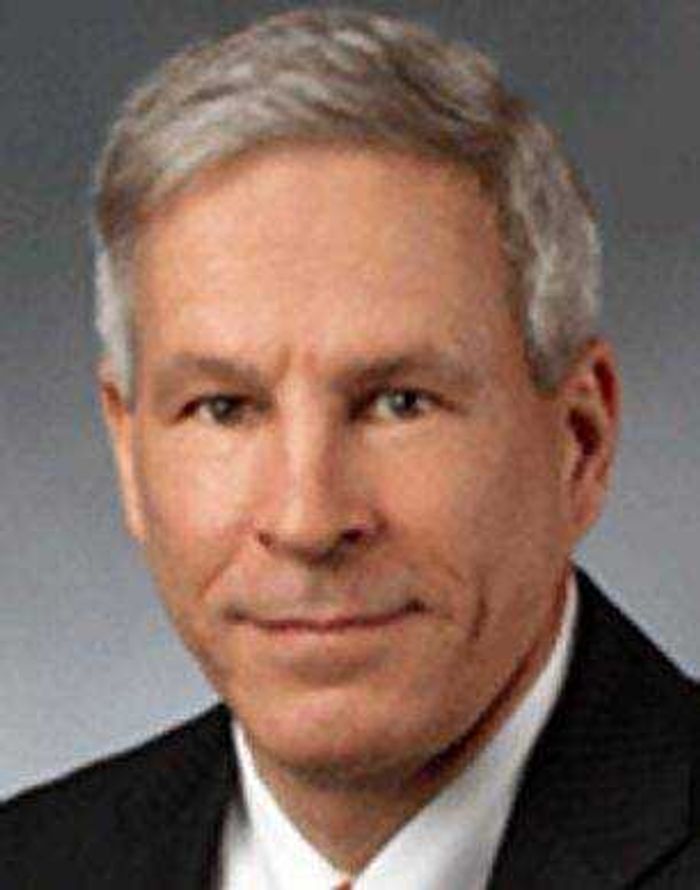Doctor shopping of prescription drugs remains a scourge in Missouri
Missouri is facing a prescription drug abuse epidemic, with dealers who sell to addicts from their own doctor-prescribed bottles. There's no way for doctors in Missouri to know a patient already has a prescription, because the state does not have a prescription-drug database...
Missouri is facing a prescription drug abuse epidemic, with dealers who sell to addicts from their own doctor-prescribed bottles.
There's no way for doctors in Missouri to know a patient already has a prescription, because the state does not have a prescription-drug database.
With doctors in the dark, the most prevalent means to combat the illegal activity are undercover buys. Unlike other drugs, which are illegal to possess, prescription-pill crimes mostly are uncovered when a dealer is caught in the act.
Illegal possession can be prosecuted if a dealer moves the pills to some other type of package, but it is difficult to prove intent to distribute.
In the past decade, opioid abuse in Missouri has increased by about 300 percent, from 137 of 100,000 hospital patients in 2005 showing some signs of opioid abuse to 424 per 100,000 in 2014, according to a report from the Hospital Data Institute.

"This is a very serious epidemic," said Tom Holloway, executive vice president of the Missouri Physicians Association. "It's out of control."
Mark McClendon, director of the SEMO Drug Task Force, said doctor shopping -- the process of seeing multiple doctors for prescriptions -- remains the most common way people acquire the drugs.
"There's nothing on the books that says I can't go to 15 different doctors," McClendon said.
Missouri is particularly susceptible to doctor shopping because it is the only state that does not have a prescription drug management system, according the United States Drug Enforcement Agency,
Ripe for abuse
State Rep. Holly Rehder, R-Sikeston, has sponsored several bills, including one this legislative session, to create a prescription-drug database, but her attempts so far have been blocked by state Sen. Rob Schaaf, R-St. Joseph.
"We're missing out on containing these narcotics, keeping them off the street," Rehder said. "We're also missing the opportunities for the abuse to be found. All the physicians' organizations throughout the state, all the medical groups are on board."
Cape Girardeau County Prosecuting Attorney Chris Limbaugh and Holloway said a database would almost entirely eliminate doctor shopping because doctors and pharmacists would be able to see who has received medication.
"We've tried to pass the prescription drug monitoring program for several years," Holloway said.
But for now, an addict such as Dustin of Jackson, who did not want to give his full name for legal reasons, can have a network of 15 to 20 dealers and middlemen, each dealer with a prescription, where he could buy Percocet, fentanyl and Xanax. Addicts know the prescription schedule and try to ration their usage accordingly.
Dustin used non-prescription illegal drugs, too, but pills always were an option.
"Pills were 10 times easier to get," he said.
And those dealers could be anyone -- the spectrum in Cape Girardeau ranges from a 22-year-old college basketball player selling Adderall to a 59-year-old woman selling hydrocodone and clonazapam out of the back of her house.
Citizen policing
Missouri doctors currently try to establish their own protocols to stop doctor shopping.
Dr. Christopher Reis, director of the Regional Brain and Spine Center's Pain Management Program in the Southeast Medical Office building, requires new patients to submit to a CT scan or MRI, then go through a thorough diagnostic process.
Even then, prescribing opioids is a last option. After patients are prescribed pain medication, they are required to bring the drugs to the office on subsequent appointments and have them checked to make sure they have not sold any of their pills.
With these measures, the Brain and Spine Center holds a reputation, based on websites Reis has seen, as a place that is difficult to scam. Reis said he still sees people who come in and try.
"Some (doctors) are very quick to give opioids for pain," Reis said.
Holloway said patients experiencing legitimate pain in their knees or backs may not show any obvious physical manifestations of that pain, making differentiating real patients from actors a tough task.
"It is very difficult, especially if the patient is bound and determined to get what they came for," he said. "They still try to trick you."
Limbaugh said doctor shopping is difficult to find -- it's not something police officers observe or have knowledge of. Prosecutors have the option of charging offenders with a fraudulent attempt to obtain a controlled substance, but it's more often used in a case like the one against Tanya Nicole Rankin, 32, of Cape Girardeau.
She was accused of stealing prescriptions off a printer at the Advanced Pain Center in August 2014, forging a doctor's signature, then trying to use the fraudulent prescription at a local pharmacy.
Getting it done
Rehder said law-enforcement groups and medical professionals are on board with creating a tracking system, and the primary obstacle to a Prescription Drug Monitoring Program in Missouri is Schaaf and his supporters.
In 2012, Schaaf filibustered to kill a similar bill, and Rehder said she believes he was instrumental in the Senate tacking on a $6 million cost that killed a more recent iteration.
Schaaf has said he believes a database would infringe on individual patient freedom.
Schaaf also received campaign contributions from drugmakers Merck ($500 in October 2014), Johnson & Johnson ($750 in September 2014) and Eli Lilly Co. ($1,000 in October 2014) but received larger contributions from groups such as Missouri Club for Growth ($25,000 in October 2014), Missouri Doctors Mutual Insurance Co. ($5,000 in August 2014) and Missouri Medical PAC ($4,000 in September 2014) that have no known stance on Rehder's legislation.
Rehder said she believes the database can be created with about $500,000, the amount Missouri could receive in a federal grant. It would be run through the state department of Health and Human Services.
The legislative session begins in the first full week of January.
bkleine@semissourian.com
(573) 388-3644
Connect with the Southeast Missourian Newsroom:
For corrections to this story or other insights for the editor, click here. To submit a letter to the editor, click here. To learn about the Southeast Missourian’s AI Policy, click here.










